Farming is in Martina Calvey’s blood.
Like her siblings, she grew up helping her father Martin hill-farming on Achill Island. He has been rearing Mayo Blackface ewes for almost 70 years, but the family’s history of hill-farming goes back seven generations. Their Achill Mountain Lamb meat is sold all over the country.
Martina says the difference between their lamb meat and any other in the country, is that living on Achill Island they have control over the product from start to finish.
They are walked to our abattoir after wild grazing and are butchered and boxed on-site at Calvey’s.
Her father, Martin, still rears the sheep, along with her brothers, Edward and Martin. Martina’s sister, Grainne, is one of Ireland’s few female butchers. Martina is the company’s commercial director and runs her own certified organic sheep farm.
“I could be on the road doing deliveries to Castlebar, or Ashford Castle, or Dublin on a Monday” she says.
“The next day I could be doing accounts or working on a new product, talking to food writers, or following up sales leads. Some visitors could be coming to Achill, or I might have a meeting. It’s a cliché, but no two days are the same.”
In recent years, the business has extended its clientele to Northern Ireland through the Intertrade Ireland programme.
“We started that in 2014 and I realised that networking is just so important. It is all about making connections. I suppose that is why the Women In Farming Ireland (WFI) appealed to me.”
The beginning
Martina got involved with this group in 2015 when she was contacted by Ann Stenning, a Wexford-based farmer who wanted to bring Irish women in farming together in a group. They met at the Horse and Jockey in Tipperary, and it started for Martina from there.
She since went on to help form the West Women In Farming group, of which she is now the chairperson.
“We carried out research and found the biggest need among women in farming is access to information on alternative farm enterprises, diversification and supports in doing so.
“Women bring massive added value to farming with their training, qualifications and life experience, and their views are not being heard by policy-makers. That must change.”
Aside from her work with the farming groups, these are busy days for Martina Calvey. The lamb season runs from June to December, and this year has been busier than ever. The company won three Great Taste stars in August and recently triumphed again at Blás na hÉireann.
“We won gold at Blás for the Achill belly pudding, which is a lamb’s blood pudding. We are really excited about that because it is a heritage recipe which was always made with sheep’s blood. That was in danger of being forgotten. We also worked with Jess Murphy from Kai restaurant in Galway on a lamb and seaweed sausage, which was a finalist product in Dingle.
“I have always wanted to write the food history of Achill, so that is one of the next things on the agenda. We have recently been selected as the lamb meat of choice by Avoca Ireland for their stores, and we are busy working on product development. Given that we have never received any support from any agency or funding body, we manage to achieve these things through passion and sacrifice.
“Updates from WWFI include a Christmas party for everyone working in the agri world on 10 December at the Loughrea Hotel, and there is also a day planned at GMIT on 25 January all about farm diversification. It’s hectic, but we wouldn’t have it any other way.”
For details on the diversification day, email martinacalvey@achilllamb.ie and for enquiries on the Christmas party night, call 086-1686867.
For further information, check out West Women in Farming Group on Facebook, or visit www.achilllamb.ie
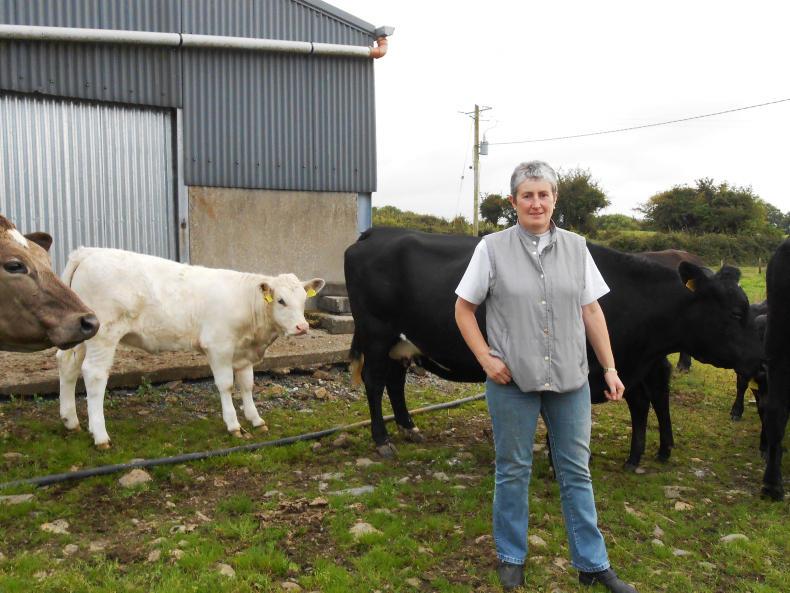
Catherine Guest, chair of the newly formed Meithei na mBan - Rural Women Munster.
Catherine Guest farms in a scenic area of North Tipperary, close to the Devil’s Bit Mountain. She has recently been elected chairperson of the newly formed Meithei na mBan – Rural Women Munster.
Meitheal is an old Irish word meaning “coming together” to achieve a goal.
As well as being a founding member of this group, Catherine is also a founding member and former chairperson of New Futures Farming Group based in Tipperary, which was set up as a support and learning network for farmers who were facing a decline in the industry while other sectors of the economy were booming during the Celtic Tiger years. The social aspect of the group also became important, as farming can be a very isolating occupation.
Catherine says she knows first-hand how isolating farming can be as a one man/woman business.
Her parents’ farm was transferred to her almost 25 years ago, but Catherine stresses she has always been a farmer. She is eternally grateful to her late parents, John and Julia, for giving her the opportunity to build a career and follow her dream by doing what she loves and is passionate about.
“I just love the freedom of working in the outdoors and working with animals,” she says.
“I grew up farming beside my parents and got a lot of knowledge from them. They both recognised that I was very hands-on and interested from an early age.
"I have one sister, Geraldine, who is employed locally and is always willing to help out when called upon. I also have a very good team of local agricultural contractors, who are most reliable and do the silage cutting and slurry spreading.
“When I started farming, going to the mart was a daunting and almost intimidating experience. I now find it an easier experience, almost enjoyable. I usually attend my local mart on a weekly basis, to keep myself informed of the markets. I farm a suckler herd. The calves are kept on the farm until they reach the forward store stage. I also buy some weanlings in autumn. I purchase and sell my stock in Templemore or Thurles marts.
“Buying and selling stock has changed in the last number of years. You are no longer just watching the animal in the ring, but also watching its credentials on the display screen. The age of the animal and the number of times it has been moved out of a herd all have a significant impact on price, especially when it comes to selling the finished product.
“I house all my animals in slatted units from mid-November to early April. I farm in an Area of Natural Constraint. Heavy rainfall, particularly in this area, at any time of year can be detrimental. However, 2017 has been good so far.
“Farming can be a great challenge and more so if you work alone. For that reason, I think it is important that farmers join groups in order to come together to discuss their problems and be a support to each other.
Farming can be a great challenge and more so if you work alone
“In December 2013, I attended the launch of the Women in Agriculture report by Dr Pat Bogue and Dr Lily Mulhall. On that occasion, I met a number of women who were interested in setting up a national organisation for farming women. Groups have now been set up in the southeast, Munster, west and northwest.
“I, along with another Tipperary woman, Mary Ryan, and some friends from Kerry, have recently formed Meitheal na mBan to serve the Munster region.
"To date, we have held three meetings. A lot of topics have been discussed including succession, rural transport, fair deal, agri education, broadband, lack of pension entitlements, incidence of lyme disease, etc. Although this is an all-female group, I want to stress that we are not anti-men at all, we just want to help create a voice for women. It’s about being equal and working alongside our male counterparts in what is Ireland’s biggest industry.”
For further information, check out Meitheal na mBan on Facebook, or contact Catherine on 086-1575949, or catherineguest2012@hotmail.com
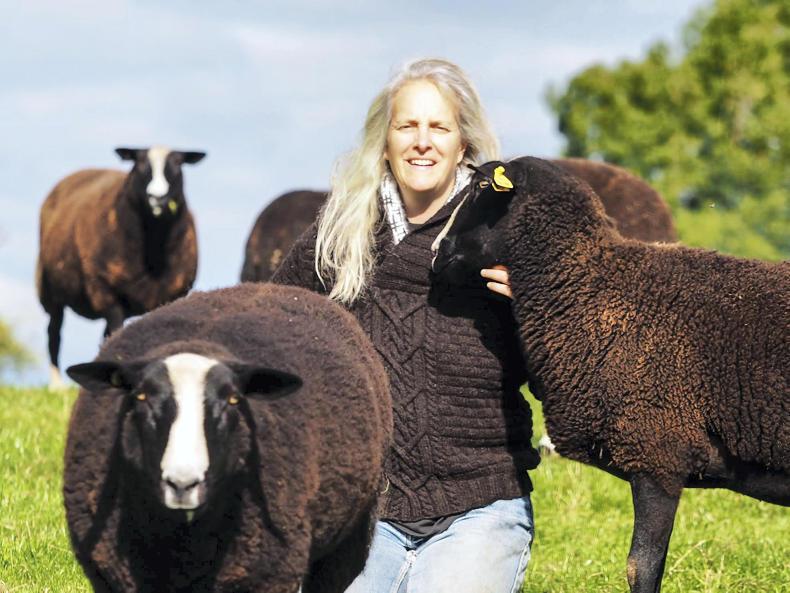
Suzanna Crampton with her Zwartbles flock. \ Celia Bartlett
Suzanna Crampton rears rare-breed Zwartbles sheep whose wool makes exquisite blankets. She is also involved in the South East Women In Farming group, which grew out of meetings with similar groups in Wexford and Kerry.
Based in Kilkenny, she spends most of her time farming and keeping up to date with social media and sales.
“I don’t have enough land to rear sheep for meat, so I needed to do something with added value, which is why I got into the blankets,” says Suzanna.
“I came across Zwartbles at the Ploughing Championships. I loved their wool. It is a soft, rich, chocolate brown, with white tips. I bought three hoggets and one pregnant ewe. The herd soon grew, but I didn’t know what to do with them.
“A chance meeting with the Kilkenny City Arts Officer, Mary Butler, led to a collaboration with a group of local ladies. We learned how to shear the wool before it was cleaned and carded at Cushendale Woollen Mills. It was then made into felt pillow covers for exhibition at the 2011 Shearing Championships at Cillin Hill.
“Three weeks after the blanket was made, it was selected by the Crafts Council of Ireland to represent Irish design at the London design festival of 2013. A few months later, Michael D Higgins selected the Zwartbles Ireland travel rug as a diplomatic gift for his Central American travels.”
Since then, Suzanna has made connection with other Zwartbles breeders across the country to get enough wool to make knitting yarn, blankets and travel rugs.
“I have to earn an income. I am lucky that I have only myself to support, so I can make enough money to eat, pay my bills, my insurance, buy feed and do a little bit of travel,” she says.
“I make a moderate, survivable income, helped by creating annual calendars and inviting tour groups.”
Regular link-ups
She admits that she is someone who “enjoys her own company”, but finds that being involved in the SE Women in Farming Group is a way of finding out valuable information.
“I really enjoy meeting the other women and hearing their perspective on agricultural and farming conundrums. I learn something new at every meeting, but I also love how they help bring so many women out of isolation.
“We have regular link-ups with other groups across the country and they all say the same thing. We have to highlight issues that deal directly with women who farm, such as maternity leave, as well as increasing our profile in mainstream farming media, not just the lifestyle pages. We have come a long way, but there’s still a way to go.
“We are a women’s group, but men do attend and are most welcome. We have had a few men at each of our meetings. All the women involved love men.”
For further information, check out South East Women In Farming Ireland on Facebook or visit www.zwartblesireland.com
Do you know the average age of an Irish female farmer?
Exclusive: women make up just 3% of dairy co-op boards
'It's very unrealistic for a woman to run a farm' – Liveline caller





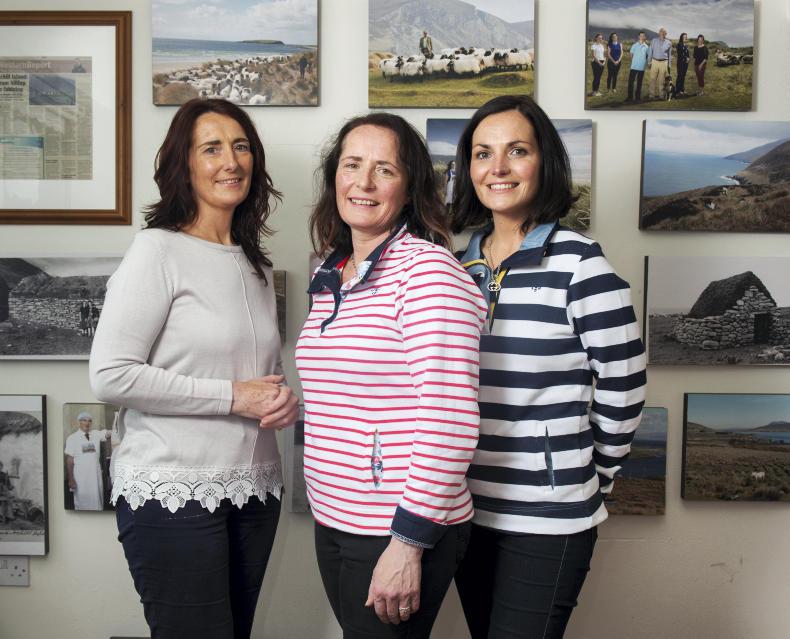
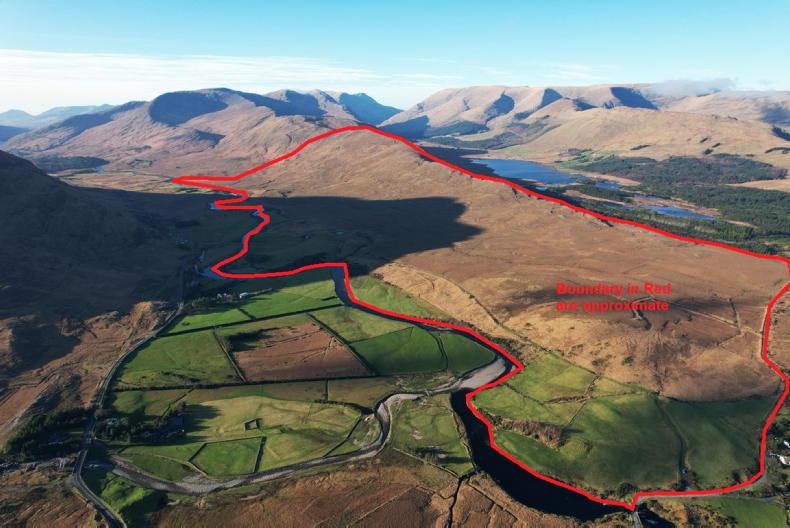

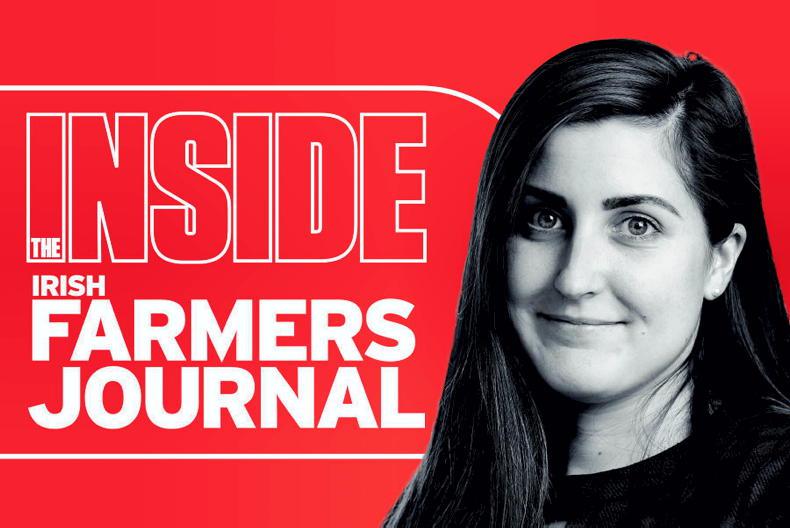

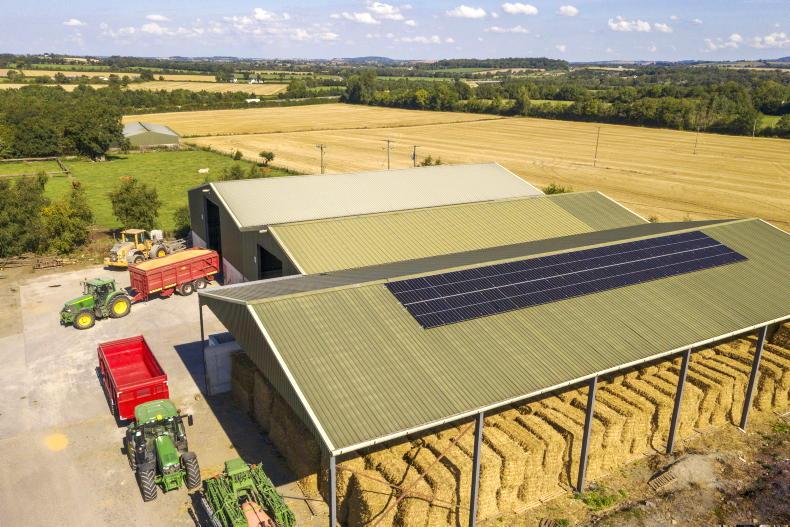
SHARING OPTIONS